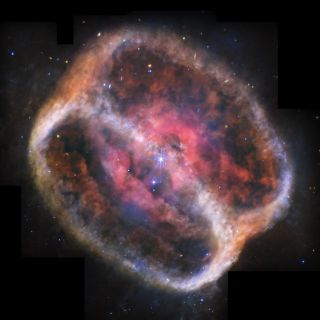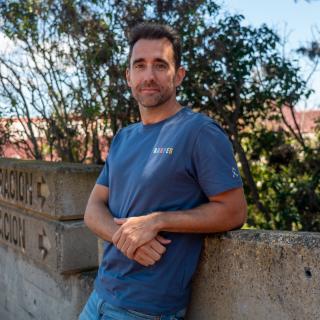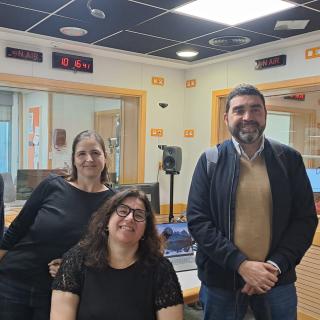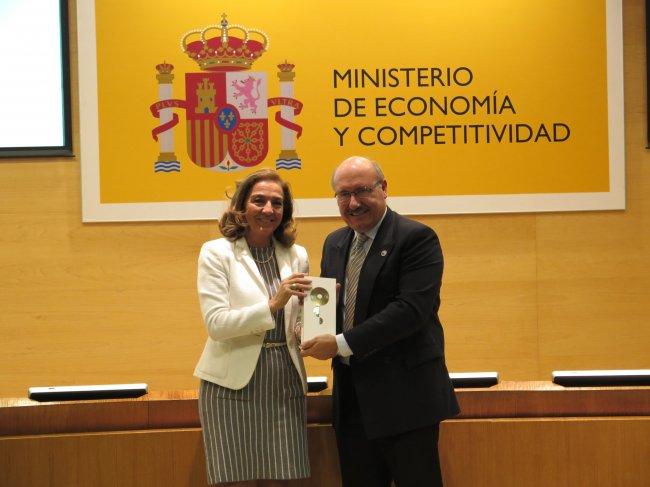It may interest you
-
 An international team, including a researcher from the Instituto de Astrofísica de Canarias (IAC), has obtained an incredible image of the planetary nebula NGC 1514 using the James Webb Space Telescope (JWST), revealing the nebula's spectacular dusty rings in unprecedented detail. NGC 1514 was one of the first nebulae to be studied by astronomer William Herschel, who noted that when viewed through his telescope (the biggest in the World at the time) the nebula looked like a fuzzy cloud somewhat similar in appearance to one of his other discoveries: the planet Neptune. The new images acquiredAdvertised on
An international team, including a researcher from the Instituto de Astrofísica de Canarias (IAC), has obtained an incredible image of the planetary nebula NGC 1514 using the James Webb Space Telescope (JWST), revealing the nebula's spectacular dusty rings in unprecedented detail. NGC 1514 was one of the first nebulae to be studied by astronomer William Herschel, who noted that when viewed through his telescope (the biggest in the World at the time) the nebula looked like a fuzzy cloud somewhat similar in appearance to one of his other discoveries: the planet Neptune. The new images acquiredAdvertised on -
 IAC researcher David Aguado has obtained a prestigious Starting Grant from the European Research Council (ERC), aimed at promoting promising young scientists. This is the third ERC grant -one of the most competitive and recognized of the Horizon Europe program- that the center has received so far this year, thus consolidating its international projection. These highly competitive grants provide up to €1.5 million over five years to support outstanding young scientists in establishing their own independent research groups and pursuing pioneering scientific ideas. Searching for the first starsAdvertised on
IAC researcher David Aguado has obtained a prestigious Starting Grant from the European Research Council (ERC), aimed at promoting promising young scientists. This is the third ERC grant -one of the most competitive and recognized of the Horizon Europe program- that the center has received so far this year, thus consolidating its international projection. These highly competitive grants provide up to €1.5 million over five years to support outstanding young scientists in establishing their own independent research groups and pursuing pioneering scientific ideas. Searching for the first starsAdvertised on -
 El Instituto de Astrofísica de Canarias (IAC) emitió este jueves, 26 de febrero, a las 22:30 horas, su espacio radiofónico ‘Soñando Estrellas’ en La Radio Canaria. Este programa semanal de 30 minutos, conducido por Verónica Martín y ya disponible en iVoox , nace para divulgar la labor de los más de 400 profesionales del centro y rendir homenaje a la visión de Francisco Sánchez , fundador del IAC. El programa de esta semana contó con una entrevista a Enrique Pérez , investigador y divulgador del Instituto de Astrofísica de Andalucía y del Consejo Superior de Investigaciones CientíficasAdvertised on
El Instituto de Astrofísica de Canarias (IAC) emitió este jueves, 26 de febrero, a las 22:30 horas, su espacio radiofónico ‘Soñando Estrellas’ en La Radio Canaria. Este programa semanal de 30 minutos, conducido por Verónica Martín y ya disponible en iVoox , nace para divulgar la labor de los más de 400 profesionales del centro y rendir homenaje a la visión de Francisco Sánchez , fundador del IAC. El programa de esta semana contó con una entrevista a Enrique Pérez , investigador y divulgador del Instituto de Astrofísica de Andalucía y del Consejo Superior de Investigaciones CientíficasAdvertised on
